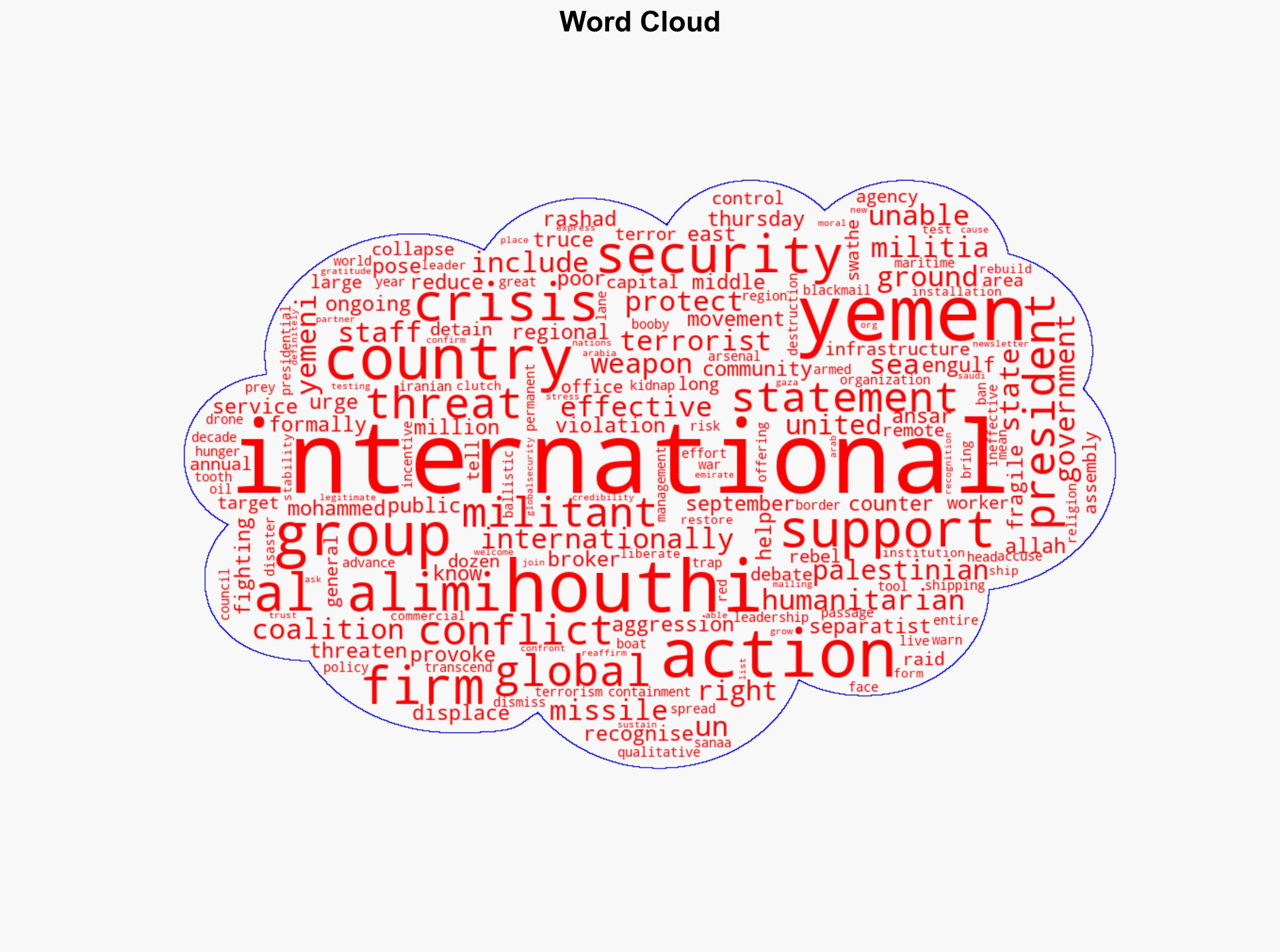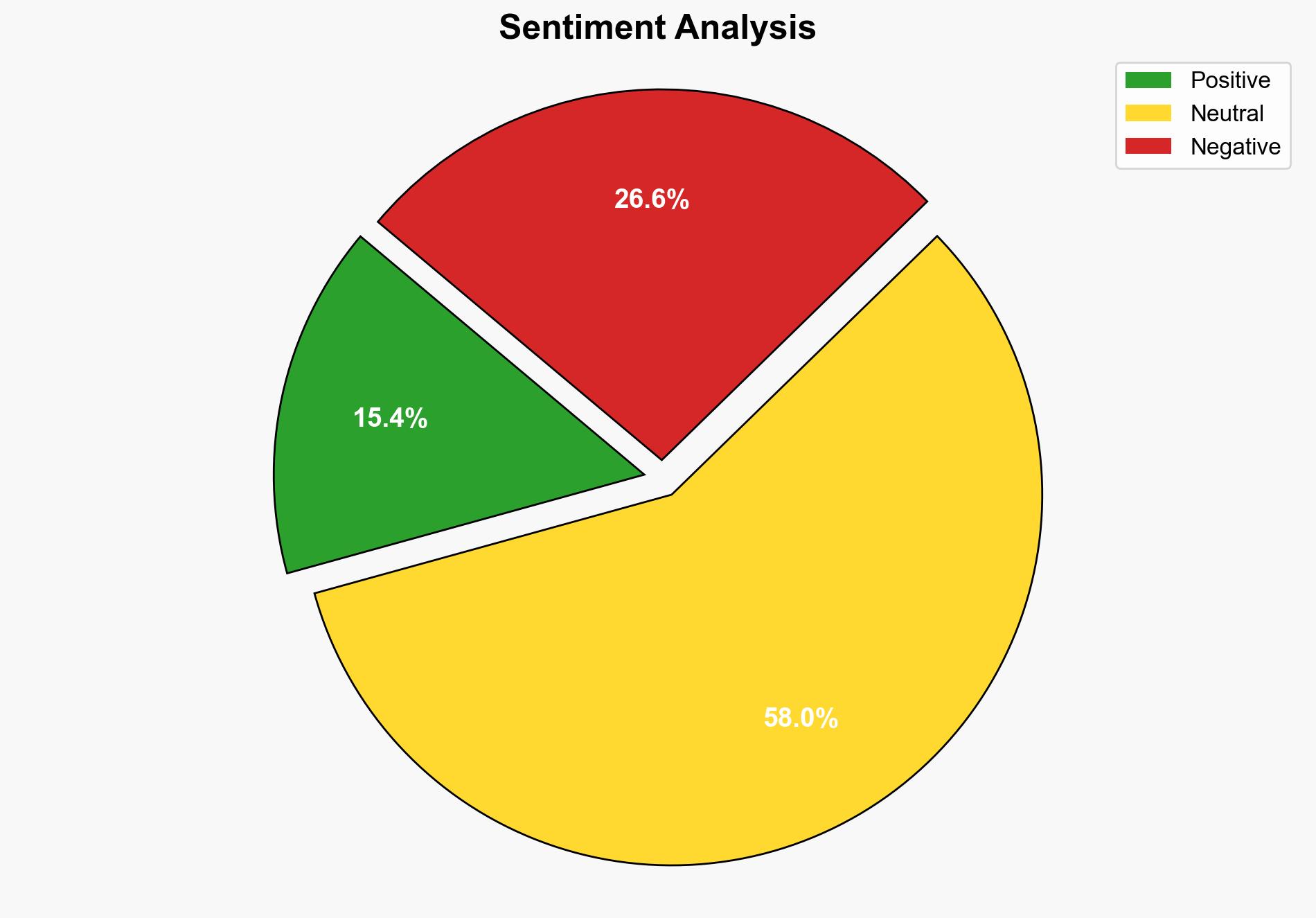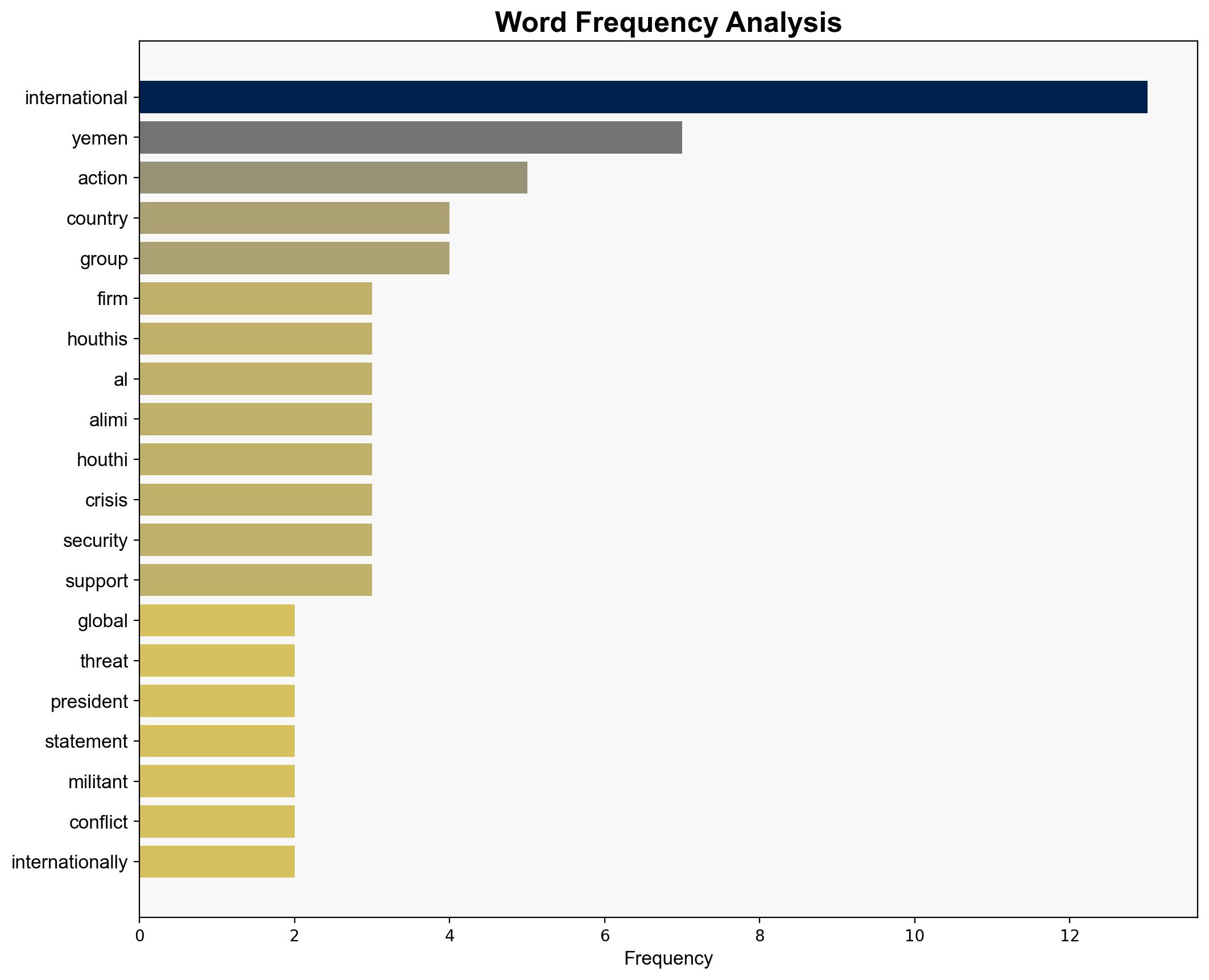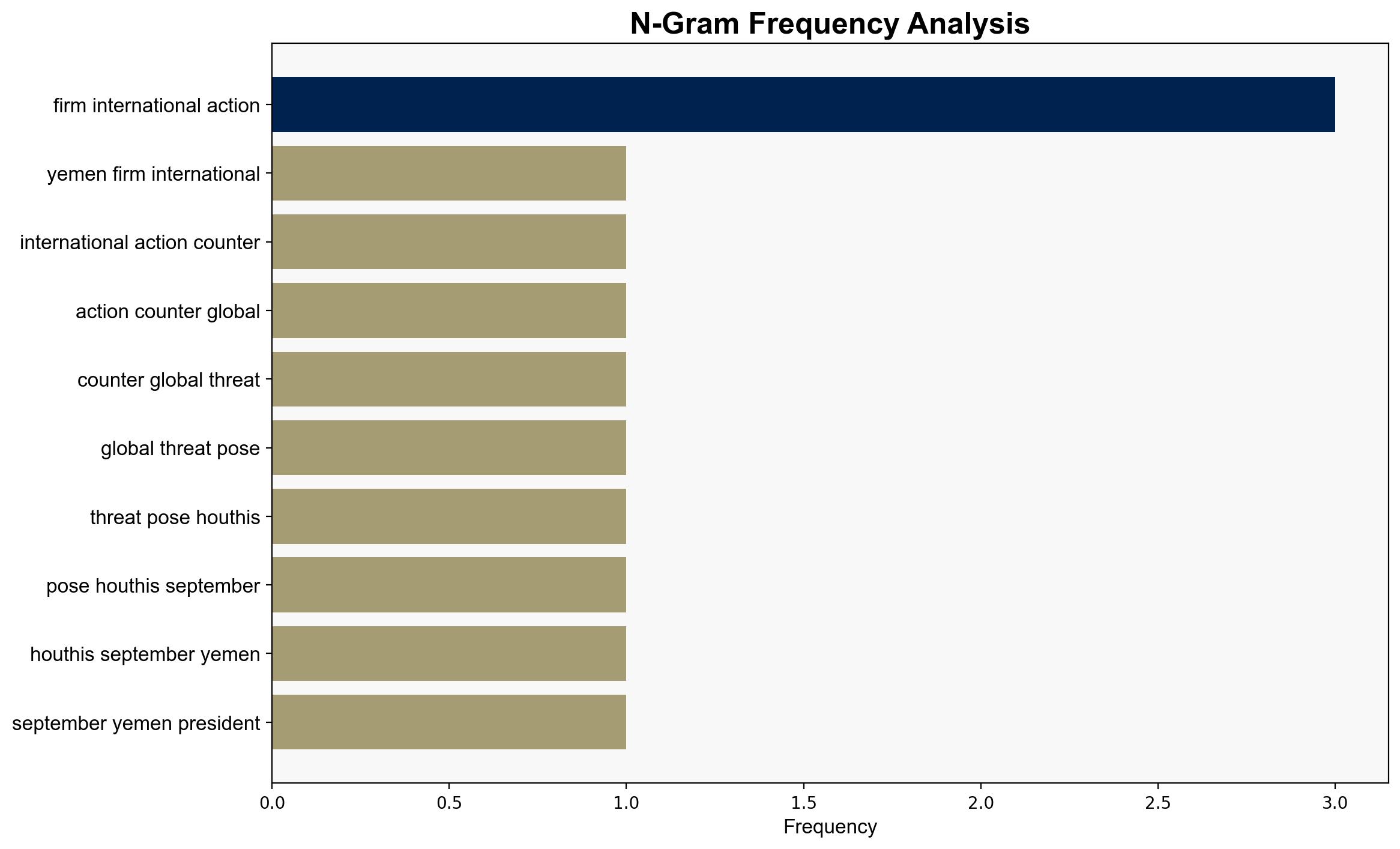Yemen calls for ‘firm international action’ to counter global threat posed by Houthis – Globalsecurity.org
Published on: 2025-09-29
Intelligence Report: Yemen calls for ‘firm international action’ to counter global threat posed by Houthis – Globalsecurity.org
1. BLUF (Bottom Line Up Front)
The most supported hypothesis is that the Yemeni government is seeking to galvanize international support to counter the Houthi threat, which is perceived as a regional destabilizer with global implications. Confidence level is moderate due to limited independent verification of claims. Recommended action is to enhance intelligence-sharing and diplomatic engagement to assess the veracity of the threat and coordinate a multilateral response.
2. Competing Hypotheses
1. **Hypothesis A**: The Yemeni government is accurately portraying the Houthis as a significant regional and global threat, necessitating international intervention to restore stability.
2. **Hypothesis B**: The Yemeni government is exaggerating the Houthi threat to secure international military and financial support, leveraging global security concerns to bolster its position domestically and internationally.
Using Analysis of Competing Hypotheses (ACH), Hypothesis A is better supported by the alignment of regional actors’ concerns and past incidents involving Houthi missile and drone attacks. However, Hypothesis B cannot be dismissed due to potential biases in the Yemeni government’s narrative and the lack of independent corroboration.
3. Key Assumptions and Red Flags
– **Assumptions**: The Yemeni government has accurate intelligence on Houthi capabilities and intentions. International actors are willing and able to intervene effectively.
– **Red Flags**: Potential bias in the Yemeni government’s narrative; lack of independent verification of claims; historical ineffectiveness of international interventions in similar contexts.
4. Implications and Strategic Risks
The situation poses risks of regional escalation, particularly if Iranian support for the Houthis intensifies. There is a potential for disruption of maritime trade routes, impacting global economic stability. Cyber threats could emerge as a tool for asymmetric warfare. Failure to address the crisis could undermine international credibility and embolden other non-state actors.
5. Recommendations and Outlook
- Enhance intelligence-sharing among regional and global partners to verify the threat level.
- Initiate diplomatic efforts to engage Iran in dialogue to reduce support for the Houthis.
- Prepare for scenario-based responses:
- **Best Case**: Successful diplomatic intervention leads to a sustainable ceasefire.
- **Worst Case**: Escalation into a broader regional conflict involving multiple state actors.
- **Most Likely**: Continued low-intensity conflict with sporadic international engagement.
6. Key Individuals and Entities
– Rashad Mohammed Al Alimi
– Houthi militant group (Ansar Allah)
– Saudi Arabia
– United Arab Emirates
– Iran
7. Thematic Tags
national security threats, cybersecurity, counter-terrorism, regional focus





